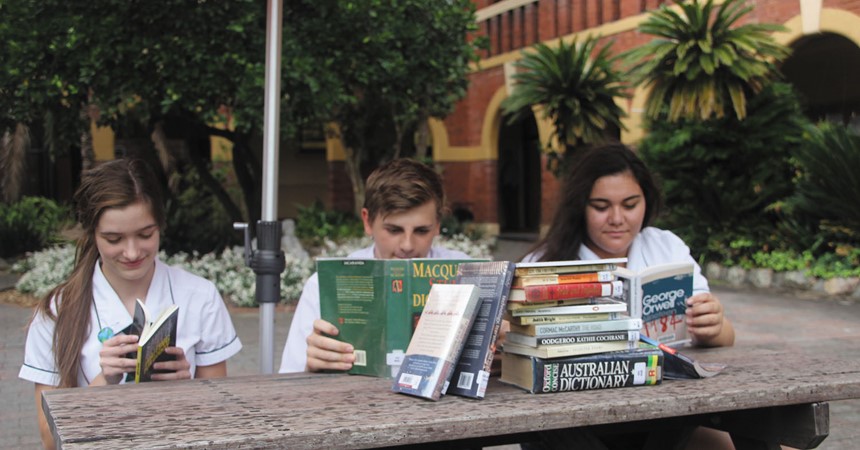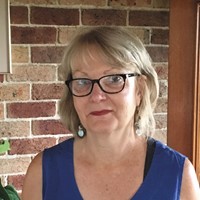I have been teaching English since Jane Austen was a debutante. There certainly have been many changes to the HSC syllabus, and more to come as the new National Curriculum is rolled out. Currently, students in NSW can choose one of four English courses to study: Advanced, Standard, ESL (English as a Second Language) or English Studies. Passionate and talented students can elect to do an Extension course as well.
The courses have a similar structure, but are tailored to the needs and interests of different students. For instance, the English Studies Course has a more practical bent, does not have an external exam, and is designed for those not wanting to go on to university. Each of the courses reflects the need to communicate effectively and think critically in our fast-changing world.
Senior English has never been just about learning a set of facts, which is perhaps why many students are challenged and even frightened by it. In Mathematics, 2 + 2 is always 4. But in English, 2 + 2 might well be an allusion to Noah’s Ark. I know some students must think it is a secret world of simile and metaphor that has little relevance to their world. But students are taught to think beyond the literal and to appreciate that writers, poets and film-makers tell stories and create images that challenge our perceptions and responses to life and help us make sense of our world. Offering something more than Kardashian culture is extremely important in a Catholic school, and the English syllabus can play an important role in equipping school leavers spiritually, morally, intellectually and socially.
Let’s take the Bard himself, William Shakespeare, compulsory study for students who choose the Advanced course. Whilst some would dismiss him as a fuddy-duddy, older than the Ark itself, his take on life offers some very useful advice. In his final play The Tempest, which I try to sell as “Elizabethan Celebrity Survivor”, Shakespeare’s main character, Prospero, is given a life lesson in what is really of value. He discovers it’s not retribution and an eye for an eye, but forgiveness, understanding and compassion. And if you take the Standard Course, you might well study the poetry of Wilfred Owen, a journalist at ground zero in the World War I trenches, observing and then describing the horrors and personal costs of war so that students have some emotional and intellectual understanding of the sacrifices men made for their country.
There are plenty of works by Australian authors too: Banjo Paterson, Henry Lawson, Marele Day, Oodgeroo Noonuccal, Anna Funder, Tim Winton, Tara June Winch, Michael Gow, Judith Wright and many more. In prose, poetry and drama, students are learning different perspectives on the land they live in, its history and modern culture.
There are contemporary speeches for study in both the Advanced and Standard Courses. There’s the Redfern Address by former Prime Minister Paul Keating and Barack Obama’s Inaugural Address. There’s a Boyer Lecture by Australian author Geraldine Brooks, and Aung San Suu Kyi’s Nobel lecture. Students look at the context of these speeches and the backgrounds of the speakers. They analyse the language used to persuade or inform a specific audience about an issue. Not only do students emerge with a large injection of general knowledge, they learn about the power of words to move people. I like to think that one of those students might be inspired to change the world…or at least become a spin doctor for Woolworths when their salads have salmonella.
If Ingmar Bergman, the famous Swedish director, can make the claim that film “goes directly to our feelings, deep down into the dark rooms of our souls”, then that’s enough of a reason to have it as staple fare in HSC English. In the ESL course, for instance, the iconic (“it’s the vibe”) The Castle is on the menu, as is the television series Go Back to Where You Came From. These texts explore and explain Australian cultural attitudes to students who may come from a migrant or refugee background. Also served up is a 1926 German silent film Metropolis from which Advanced students learn about power and exploitation. Sofia Coppola’s Lost in Translation shows Extension students how misinterpreting cultural cues can be devastating. Standard students can examine the role chance plays in life in the German thriller Run Lola Run. Of course this is just a taste. And having said very little about English Studies, the course you take when you’re not wanting an ATAR, film is a good place to start. With a unit of work entitled, “In the marketplace – English and the world of business”, James Dearden’s film, Rogue Trader or Muccino’s The Pursuit of Happyness are fitting choices. Websites also feature in this course, for example, www.fairtrading.nsw.gov.au, and www.abc.net.au/tv/gruentransfer.
Students hone their essay writing skills throughout both years 11 and 12, but there are other sorts of assessments: interviews, oral presentations, web page designs, for example. This, and the scope of texts, means that there’s something for everyone and importantly, students are challenged by texts they otherwise might not encounter. Whilst Isaac Newton might have great pull in Science, we have Australian poet Douglas Stewart to capture the power of nature: “And still in a whirring hush of wings the bent old tea-tree showers/Storm upon storm of snow-white moths from the midst of its cloud of flowers.”
And if Douglas Stewart’s not entirely your bag, you might be able to reference the 1970 song lyrics of Crosby, Stills, Nash and Young: We are stardust, we are golden, We are billion year old carbon. And we got to get ourselves back to the garden.
One of the most rewarding comments I had last year from an HSC student was that he had learned more in English than in any other subject. I like to think that’s the reason why English is the only compulsory subject in the HSC.
Jane Mack is a teacher at St Mary’s Campus, All Saints College, Maitland – and a film aficionado, pop culture guru, world traveller and cutting edge commentator!























































































